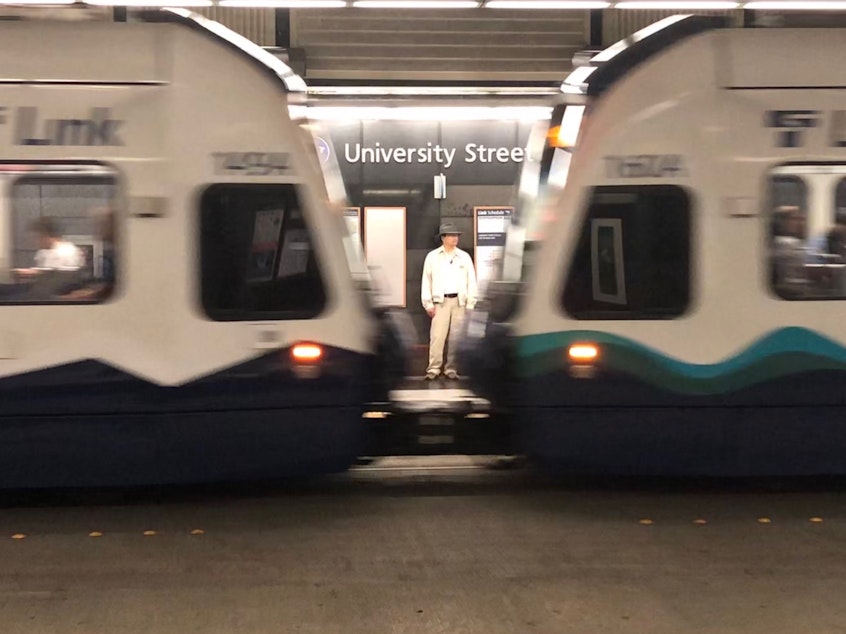What's the cost of car tab fees? Washington voters will decide

Tom Campbell was waiting for his wife to pick him up at the Tukwila light rail station on a rainy, weekday afternoon.
It’s a busy hub: buses, trains and a park and ride. It’s part of Campbell’s commute patchwork.
“I ride with coworkers and I piece together the other legs with Lyft, my wife helps out sometimes,” he said. “I use Link obviously, too.”
That’s Link Light Rail, part of the Sound Transit system.
As someone who rides light rail daily, Campbell wants to keep funding Sound Transit projects.
“I actually don’t mind paying taxes," he said.
OK, he might not. But advocates for Initiative 976 say car registration fees are too high.
Next month Washington voters will decide if vehicle owners are paying too much for car tabs, or if that flow of money should keep going to public projects like mass transit.
Right now drivers can pay hundreds of dollars for tabs. I-976 would drop that to a flat $30 (although a surcharge for hybrid and electric vehicles would remain).
In Tukwila, another person with concerns about the cost of tabs is E2-Lovely. When asked about the flat fee he said, “We need that. That’s respectable."
But a drop to $30 tabs could mean big cuts to public transportation,
In King County alone, transportation projects would lose $4 billion over the next decade. King County Metro’s John Resha said service in Seattle’s south end could be hit hard if I-976 passes.
“There are approximately 74 routes that are primarily Seattle, but connecting to Burien, Shoreline, Skyway, Tukwila, White Center that would have to be affected,” he said.
Resha said the money raised by tab fees in Seattle pays for 175,000 service hours every year.
Metro would have to find a way to pay for those rides or make cuts. Cuts would also come from the Washington State Patrol and Sound Transit, which relies on the fees for light rail expansion. Cities could lose money for road paving and fixing potholes.
But initiative promoter Tim Eyman said Sound Transit is unfairly valuing cars to boost their income.
“We have a government that's taxing a $10,000 vehicle like it's worth $25,000,” he said. “They're artificially inflating the value of your vehicle in order to take more money than they really should.”
If passed, I-976 would require using Kelley Blue Book values for future car taxes.
Metro’s John Resha said saving money in the short term could actually end up being more expensive down the line.
“We have a whole transportation system that has to work together, and if a part of that transportation system degrades or begins to fail, it affects everything,” he said.
This is the argument opponents of I-976 are making to drivers: Even if you don’t use the bus, chipping in will mean fewer cars on the road and less traffic.
Metro user Campbell at the Tukwila light rail stop compares his tab fees to paying for public parks or schools.
“I don't have children, I never have,” he said. “I always vote for the bond issues that subsidize education. I don't have any issues with that.”




